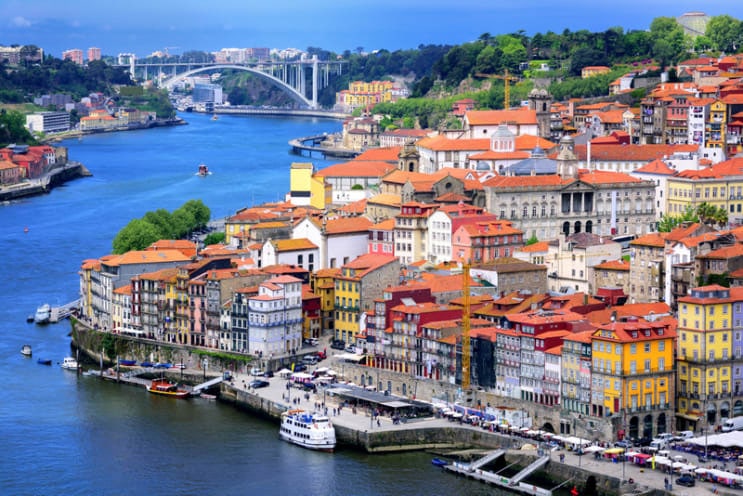There is no denying that Portugal is one of the most popular destinations not only for tourists but also retirees and business people.
The warm weather, stable political environment, and plenty of incentives for ex-pats are just a few reasons why everyone from across the globe is trying to get into this country.
With that said, it is also worth mentioning that Portugal is also among the few countries in Europe that have made it easy for qualified individuals to visit and also relocate permanently.
In this regard, Portugal has several residency visas for non-EU citizens to get into the country. Each type of visa available is purposely aimed at different individuals, for instance, investors, qualified professionals, or retirees, just to mention a few.
However, with so many choices at your disposal, it can get tricky zeroing down on the correct type of visa for you. To help you make up your mind, we are going to take a look at two of the most popular residency visas in Portugal; Business visa D2 and passive income D7. Stick around to find out more.
Getting a Portuguese Visa
Whether you are applying for a D2, D7, or even a tourist visa to Portugal, the process is essentially the same. First, you need to either make the application online or visit your local Portuguese consulate and start from there.
However, when it comes to visiting Portugal for less than 90 days, you need to be aware that not every country needs a visa for that. But keep in mind, for the other types of visas, you should be able to provide the necessary documentation.
Different Aerial Footages of Lisbon and Sintra in Portugal
Remember, not all visas are the same, some have different requirements and might also need you to have even more documentation. Once you have all the documents ready, You can submit them to your nearest Portuguese consulate, pay the necessary fees, and wait for your visa to be processed, which should take a minimum of 15 days, depending on your individual circumstance.
However, it’s kind of necessary to take an expert/lawyer’s assistance to prepare the documents before submitting them.
What is a D2 Visa?
Popularly referred to as the business visa, it is exclusively for individuals to start a business or move an existing business in Portugal.
It is particularly common with independent service providers or freelancers who want to relocate to Portugal. It goes without saying that this particular visa does not apply to everyone; however, if you have an entrepreneurial spirit and you have set your eyes on Portugal, then this visa might be your gateway to this beautiful country in Southern Europe.
Unlike the entrepreneurial visa in other countries, you only need a minimum investment capital of 5000 pounds and a good business plan.
Applying for the D2 Visa
As mentioned before, not all visas are, so before getting the D2 visa, you must fulfill a set of requirements beforehand.
Let’s take a look at some of the documentation that you will need during the application,
- Valid identification document, i.e passport
- Clean criminal record
- An applicant’s statement
- Show proof of accommodation prior to travel
- International travel medical insurance
- Bank statement showing balance (Company, not personal)
- Registration certificate of the company in Portugal
- Birth certificate and other civic and education documents
- Registration and declaration for the start of business activities
It is also worth mentioning that you will also need to open a bank account in Portugal and get a NIF number.
The D2 visa has many advantages like family reunification, citizenship after five (05) years, and permission to live in Portugal for three (03) years, just to mention a few.

Nonetheless, the major shortcoming that is not often spoken about enough is that starting a business is quite tough, especially in a different country.
What is a D7 Visa?
The D7 visa is also called the passive income visa or retirement visa. This is one of the most common types of visas sought after by expatriates who are looking to relocate permanently to Portugal.
This visa is exclusively for anyone with a consistent income, say a monthly pension or a regular salary from a remote job. While individuals with enough savings can also get this visa, those with a regular salary or money flow often successfully get the D7 visa.
Another noteworthy mention is that you will need proof of an income that is more than the Portuguese monthly minimum wage, which currently stands at €822.5 per month, mentions CountryEconomy.com. Remember, the minimum wage is also subject to changes depending on the specific city in Portugal.
If you have dependents like children, you must show that you can also support them.

Here are some acceptable types of income for the D7 visa,
- Remote work salary
- Freelance work
- Pension
- Annuity
- Stocks dividends
Applying for the D7 Visa
Similar to the D2 visa, you will need to fulfill some requirements and produce several documents for your application to succeed.
- Valid identification document, i.e passport
- Proof of regular passive income
- Clean criminal record certificate
- International travel medical insurance
- The applicant’s statement
- Show proof of accommodation in Portugal
- Proof of livelihood
- Birth certificate and other civic and education documents
While the process may appear complex, proper preparation and enough due diligence will go a long way in making sure you avail all the necessary documents, among other requirements.
However, the visa application process might initially feel daunting if it is your first time dealing with the Portuguese public system. It is a good idea to seek guidance and direction from trusted professionals. While the D7 visa comes with many perks, for instance, the possibility of getting citizenship after five years or even relocating your whole family, this is one significant downside.
The mandatory stay of at least eight (08) months per year in Portugal might be difficult for those who want to spend more time in their home country annually.
So which one is it, the D2 or D7 Visa?
By now, it is pretty clear that both visas are intended for two different sets of people. One is for the business minded, while the other is for those with a reliable and consistent passive income.
It is also fair to acknowledge that both visas present different benefits that are appealing to anyone looking to immigrate permanently to Portugal. So which visa is proper for you? There is no single answer to this question.
Do some introspection and make your objectives for moving to Portugal clear.
If you are interested in starting and pursuing your entrepreneurial skills in Portugal, then the D2 visa is ideal.
On the other hand, if you simply want to enjoy your life living on your passive income, the right path for you is the D7 visa.
Finally, it is worth acknowledging that despite your reasons for migration, Portugal is a beautiful country with so much to offer.
The weather is just right for those who want to enjoy their time, and also there are good prospects for business in different industries.
Read also: All About Starting a Business in Portugal and Obtaining a D2 Visa





